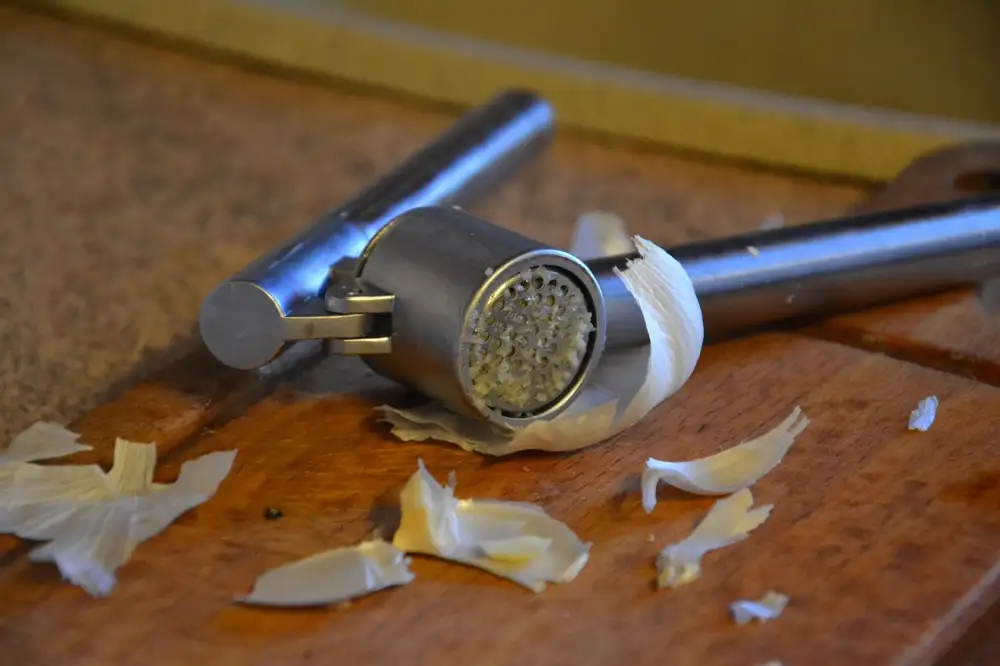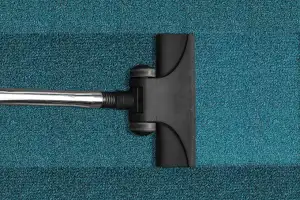The Ultimate Guide to Finding the Best Juicer for Your Home: Unleash the Power of Freshly Squeezed Juice

- Factors to consider when choosing a juicer
- Centrifugal juicers: Pros and cons
- Masticating juicers: Pros and cons
- Citrus juicers: Pros and cons
- Comparison of popular juicer brands
- Top-rated juicers for different budgets
- Tips for maintaining and cleaning your juicer
- Frequently asked questions about juicers
Juicing has gained immense popularity in recent years as a convenient way to incorporate more fruits and vegetables into our diets. By extracting the liquid from fresh produce, juicing provides a concentrated dose of essential vitamins, minerals, and antioxidants that are easily absorbed by the body. This nutrient-rich elixir can boost immunity, improve digestion, increase energy levels, and promote glowing skin. Regular consumption of freshly squeezed juice has also been linked to weight loss, reduced inflammation, and lower risk of chronic diseases such as heart disease and cancer. With its array of health benefits, juicing is an excellent addition to any healthy lifestyle.
Factors to consider when choosing a juicer
When choosing a juicer for your home, there are several factors to consider. First and foremost, think about the type of produce you will be juicing most frequently. If you plan on juicing a variety of fruits and vegetables, a versatile juicer that can handle different textures is essential.
Another important factor is the speed of the juicer. Centrifugal juicers are known for their high-speed spinning blades, which extract juice quickly but may generate heat that can degrade some nutrients. Masticating juicers, on the other hand, operate at slower speeds, preserving more nutrients in the juice.
Consider the size and storage capacity of the juicer as well. If you have limited counter space or prefer a compact appliance, look for a smaller model that can easily be stored away when not in use.
Lastly, think about your budget. Juicers come in a wide range of prices, so it's important to determine how much you're willing to spend before making a decision. Remember to also factor in long-term costs such as replacement parts or maintenance.
By considering these factors - versatility, speed, size/storage capacity, and budget - you'll be able to find the perfect juicer that meets your specific needs and preferences.
Centrifugal juicers: Pros and cons
Centrifugal juicers are a popular choice for many home juicing enthusiasts. They offer several advantages, including their high-speed operation, which allows for quick and efficient juicing. The fast-spinning blades in centrifugal juicers extract juice from fruits and vegetables by separating the pulp from the liquid.
One of the main benefits of centrifugal juicers is their time-saving capability. They can produce juice in a matter of seconds, making them ideal for those with busy lifestyles. Additionally, these juicers typically have larger feed chutes, allowing you to easily process whole fruits and vegetables without the need for pre-cutting.
However, there are some downsides to consider when it comes to centrifugal juicers. Due to their high-speed spinning action, they generate heat during the juicing process. This heat can potentially degrade some of the enzymes and nutrients in the juice, resulting in a slightly lower nutritional value compared to other types of juicers.
Another drawback is that centrifugal juicers tend to be louder than other models due to their powerful motors. If noise is a concern for you, it may be worth considering a different type of juicer.
Overall, if speed and convenience are your top priorities when it comes to juicing, a centrifugal juicer may be the right choice for you. However, if preserving maximum nutrients and minimizing noise are important factors for you, it may be worth exploring alternative options such as masticating or citrus juicers.
Masticating juicers: Pros and cons
Masticating juicers, also known as slow juicers or cold press juicers, have gained popularity for their ability to extract juice from fruits and vegetables with minimal heat and oxidation. Here are the pros and cons of using a masticating juicer:
Pros:
1. Higher juice yield: Masticating juicers use a slow and efficient process that extracts more juice from produce compared to other types of juicers.
2. Nutrient retention: The slow extraction process minimizes heat and oxidation, preserving the natural enzymes, vitamins, and minerals in the juice.
3. Longer shelf life: Due to lower oxidation levels, juices made with masticating juicers tend to have a longer shelf life than those made with centrifugal juicers.
4. Versatility: Masticating juicers can handle a wide range of ingredients including leafy greens, wheatgrass, and even nuts for making nut milk or butter.
Cons:
1. Slower operation: Masticating juicers operate at slower speeds compared to centrifugal juicers, which means it takes more time to extract juice.
2. Price: Masticating juicers are generally more expensive than centrifugal models due to their advanced technology and higher quality build.
3. Larger size: These juicers often have a bulkier design that requires more counter space or storage room.
Overall, masticating juicers are ideal for those who prioritize nutrient retention and want to extract juice from various ingredients including leafy greens. However, if speed is your priority or you have limited counter space, other types of juicers may be more suitable for your needs.
Citrus juicers: Pros and cons
Citrus juicers are specifically designed for extracting juice from citrus fruits such as oranges, lemons, and grapefruits. Here are the pros and cons of using a citrus juicer:
Pros:
1. Efficient Extraction: Citrus juicers are highly efficient in extracting juice from citrus fruits, ensuring maximum yield.
2. Speed: These juicers are typically faster than other types, allowing you to quickly make fresh citrus juice.
3. Easy to Use: Citrus juicers are user-friendly and require minimal effort to operate.
4. Affordable: Compared to other juicer types, citrus juicers tend to be more affordable.
Cons:
1. Limited Functionality: Citrus juicers can only extract juice from citrus fruits and cannot handle other types of produce.
2. Size Constraints: Some citrus juicers have small feeding chutes, requiring you to cut larger fruits into smaller pieces before juicing.
3. Pulp Control: Most citrus juicers do not offer adjustable pulp control options, resulting in limited customization.
Consider these pros and cons when deciding if a citrus juicer is the right choice for your needs.
Comparison of popular juicer brands
When it comes to choosing a juicer, there are several popular brands that stand out in terms of quality and performance. One such brand is Breville, known for its powerful centrifugal juicers that extract juice quickly. Another top contender is Omega, which offers high-quality masticating juicers that produce nutrient-rich juice with minimal oxidation. Hurom is also a reputable brand, specializing in slow juicers that preserve the natural flavors and nutrients of fruits and vegetables. Other notable brands include Cuisinart, KitchenAid, and Tribest. Each brand has its own unique features and price points, so consider your needs and budget when making your decision.
Top-rated juicers for different budgets
When it comes to choosing a juicer, there are options available for every budget. Here are some top-rated juicers that cater to different price ranges:
1. Budget-friendly option: The Hamilton Beach Juicer is a great choice for those on a tight budget. It offers decent performance and durability without breaking the bank.
2. Mid-range option: The Breville Juice Fountain Plus is a popular choice among juicing enthusiasts. With its powerful motor and wide feed chute, it can handle a variety of fruits and vegetables with ease.
3. High-end option: For those willing to invest in a premium juicer, the Omega J8006HDS is worth considering. This masticating juicer extracts maximum juice yield while preserving nutrients, making it ideal for health-conscious individuals.
Remember, the price of a juicer often reflects its quality and features. Consider your needs and budget before making a decision.
Tips for maintaining and cleaning your juicer
1. Read the manufacturer's instructions: Familiarize yourself with the specific maintenance and cleaning requirements of your juicer model. Follow the guidelines provided to ensure optimal performance and longevity.
2. Clean immediately after use: To prevent pulp and juice residue from drying and becoming difficult to remove, clean your juicer immediately after each use. This will also help maintain hygiene and prevent bacterial growth.
3. Disassemble the juicer: Take apart all removable parts of the juicer, such as the blades, strainer, and pulp container. Refer to the instruction manual if needed to ensure you disassemble it correctly.
4. Rinse with warm water: Rinse all removable parts under warm running water to remove any leftover pulp or juice. Use a soft brush or sponge to gently scrub away any stubborn residue.
5. Use mild detergent if necessary: If there are stains or buildup on your juicer parts, you can use a mild dish detergent along with warm water for a deeper clean. Make sure to thoroughly rinse off any soap residue afterward.
6. Avoid immersing motorized components in water: The motorized base of most juicers should not be submerged in water as it can damage the electrical components. Simply wipe it down with a damp cloth instead.
7. Dry thoroughly before reassembling: After washing, make sure all parts are completely dry before reassembling them back onto the juicer. Moisture can lead to mold or corrosion if left unchecked.
8. Regularly descale if needed: If you notice mineral deposits or scaling on your juicer's surfaces, especially in areas exposed to hard water, consider using a descaling solution recommended by the manufacturer.
9. Store properly: When not in use, store your juicer in a dry place away from direct sunlight or excessive heat to prevent damage and maintain its overall condition.
By following these maintenance and cleaning tips, you can ensure that your juicer remains in top-notch condition, providing you with fresh and healthy juice for years to come.
Frequently asked questions about juicers
1. What is the difference between a centrifugal and a masticating juicer?
Centrifugal juicers use high-speed spinning blades to extract juice quickly, while masticating juicers use a slower crushing and squeezing action. Centrifugal juicers are faster but may produce less juice and more foam, while masticating juicers yield higher juice quality but take longer.
2. Can I juice leafy greens with a centrifugal juicer?
Yes, most centrifugal juicers can handle leafy greens like spinach and kale, but they may not extract as much juice compared to masticating juicers.
3. Are citrus juicers only for citrus fruits?
Citrus juicers are specifically designed for extracting juice from citrus fruits like oranges, lemons, and grapefruits. They are not suitable for other types of fruits or vegetables.
4. Can I store fresh juice in the refrigerator?
Freshly squeezed juice is best consumed immediately to retain its nutritional value. However, if necessary, you can store it in an airtight container in the refrigerator for up to 24-48 hours.
5. How often should I clean my juicer?
It is recommended to clean your juicer immediately after each use to prevent residue buildup and maintain optimal performance. Regular cleaning also prevents bacterial growth.
6. Can I use my dishwasher to clean the parts of my juicer?
Most juicer parts are dishwasher safe, but it's always best to refer to the manufacturer's instructions. Some delicate parts may require handwashing.
7. Do I need a separate attachment for making nut milk or sorbets?
Some masticating juicers come with additional attachments for making nut milk or sorbets. Check the product specifications before purchasing if these features are important to you.
8. Are expensive juicers better than affordable ones?
The price of a juicer does not always determine its performance. There are many affordable juicers that offer excellent juice extraction and durability. It's important to consider your specific needs and read reviews before making a decision.
Remember, finding the right juicer for your home depends on your personal preferences, budget, and the types of fruits and vegetables you plan to juice regularly.
Choosing the right juicer for your home can greatly enhance your juicing experience and help you unleash the power of freshly squeezed juice. Consider factors such as juicing needs, budget, and maintenance requirements when making your decision.
Centrifugal juicers are great for those who want quick and convenient juicing, but keep in mind that they may produce slightly lower-quality juice due to oxidation. Masticating juicers are ideal for extracting maximum nutrients from fruits and vegetables, although they tend to be slower and pricier.
If you primarily juice citrus fruits, a dedicated citrus juicer will be more efficient and cost-effective. However, it may not be as versatile as other types of juicers.
When comparing popular brands, consider their reputation for durability, performance, and customer support. Look out for top-rated models within your budget range to ensure you get the best value for money.
Remember to maintain and clean your juicer regularly to prolong its lifespan and ensure hygienic juicing. Refer to the manufacturer's instructions for specific cleaning tips.
In conclusion, finding the perfect juicer involves considering your personal preferences, budget constraints, and specific juicing needs. By doing thorough research and understanding the pros and cons of different types of juicers, you can make an informed decision that will enable you to enjoy restaurant-quality juices in the comfort of your own home.
Published: 07. 03. 2024
Category: Home



